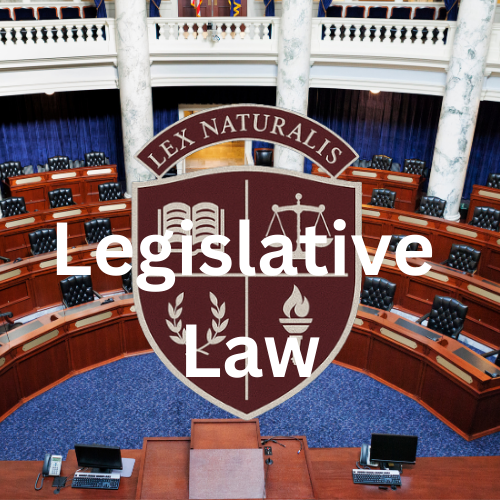What Is Libertarianism? A Political Primer
- Dr. Byron Gillory
- Jun 17
- 5 min read

Libertarianism, at its core, is a political philosophy grounded in the primacy of individual liberty, private property, and voluntary association. It asserts that the individual is the fundamental unit of moral and political concern and that the role of government must be limited to the protection of natural rights. While various strands of libertarian thought exist—ranging from anarcho-capitalism to minimal statism—this essay makes a sustained case for Constitutional Libertarianism, a principled framework in which individual liberty is legally enshrined, limited government is constitutionally mandated, and all political authority is subject to rule of law.
I. The Moral and Philosophical Foundations of Libertarianism
The philosophical bedrock of libertarianism is the belief in natural rights. These rights are not conferred by government but are inherent in the nature of man. As the Declaration of Independence so boldly declares, human beings are "endowed by their Creator with certain unalienable Rights, that among these are Life, Liberty and the pursuit of Happiness." This echoes the classical natural law tradition going back to Cicero, Aquinas, and Locke, which holds that certain moral truths are accessible to human reason and binding upon all political communities.
Libertarians argue that individuals possess rights to life, liberty, and property because these are necessary for human flourishing. These rights are negative rights, which require only non-interference from others. Unlike positive rights (e.g., a right to healthcare or education), which entail obligations on others to provide goods or services, negative rights are compatible with the freedom of all. The moral appeal of libertarianism thus lies in its universality and respect for human dignity.
II. Constitutional Libertarianism: Institutionalizing Liberty
While some libertarians, particularly anarcho-capitalists, reject the state outright, Constitutional Libertarianism accepts the necessity of a limited state governed by a fixed constitution. The Constitution is not simply a procedural document, but a moral covenant to protect liberty by restraining government power.
A Constitutional Libertarian state is built around three core institutional commitments:
Rule of Law: Laws must be general, public, prospective, and equally applied. No person is above the law, and arbitrary power is rejected.
Separation of Powers: A written constitution must divide power among legislative, executive, and judicial branches to prevent the concentration of authority.
Enumerated Powers and a Bill of Rights: Government power must be confined to enumerated powers, while individual rights are robustly protected.
Under this model, the role of government is confined to protecting persons and property, enforcing contracts, and adjudicating disputes. All other functions—education, health care, industry, charity—are left to civil society, which can address them through voluntary cooperation and market mechanisms.
III. The Economic Implications: Free Markets and Property Rights
Constitutional Libertarianism presupposes and requires a capitalist economic system grounded in private property and voluntary exchange. Property is not merely an economic tool, but the institutional expression of liberty. As James Madison noted, "Government is instituted to protect property of every sort; as well that which lies in the various rights of individuals... as that which the term particularly expresses."
Free markets unleash human creativity, allocate resources efficiently, and reward service to others. Government interference in the economy, whether through excessive regulation, redistribution, or central planning, violates property rights and distorts human incentives. The result is economic stagnation, corruption, and dependency.
Importantly, Constitutional Libertarianism insists on a sound monetary framework, free from the distortions of fiat currency and central banking. The proliferation of economic cycles and inflationary policy is incompatible with the principles of liberty, as it surreptitiously confiscates wealth and redistributes power to the political elite.
IV. Civil Liberties and Social Tolerance
A hallmark of Constitutional Libertarianism is its deep commitment to civil liberties. Freedom of speech, religion, press, and association are not optional values but essential bulwarks against tyranny. The libertarian insists that the state has no role in regulating belief, suppressing dissent, or criminalizing personal morality (so long as it does not violate the rights of others).
On matters of religion, sexuality, personal behavior, or cultural norms, the libertarian approach is legal neutrality: government must not promote nor punish any lifestyle or worldview, so long as peaceful conduct prevails. This commitment to tolerance is rooted not in relativism but in the conviction that free individuals are the rightful authors of their own lives.
V. Foreign Policy and Non-Intervention
Libertarianism applies its principles not only domestically but also to international relations. Just as individuals should not initiate force against others, so too should nations avoid aggression, coercion, and empire. Constitutional Libertarianism favors a non-interventionist foreign policy, focused on national defense rather than global policing.
Military force may be used only in defense of life and liberty—never for empire, regime change, or ideological crusades. Foreign aid, economic sanctions, and military alliances that entangle the nation in unnecessary conflicts are rejected in favor of peaceful trade, diplomacy, and mutual respect.
VI. Addressing the Criticisms
Critics often allege that libertarianism is utopian, neglects the poor, promotes corporate power, or is morally indifferent. Each of these objections deserves a thoughtful answer:
1. Is Libertarianism Utopian?No. Libertarianism is rooted in a realistic view of human nature. It acknowledges that people are fallible, self-interested, and capable of both good and evil. This is precisely why it favors limited government and decentralization. Unlike socialist or technocratic systems that assume omniscience or benevolence, libertarianism builds institutions to check power.
2. What about the Poor?Libertarianism affirms the moral duty to care for the poor—but through voluntary charity, mutual aid, and market prosperity. The welfare state is inefficient, dehumanizing, and fiscally unsustainable. By unleashing economic growth and removing bureaucratic barriers, Constitutional Libertarianism lifts more people out of poverty than coercive redistribution ever could.
3. Doesn’t It Empower Corporations?Only if the state is allowed to collude with corporate interests. True libertarianism rejects crony capitalism, bailouts, subsidies, and monopolistic regulation. In a free market, businesses succeed by serving consumers—not by lobbying government. The greatest concentration of power is not in private hands, but in the fusion of business and state.
4. Is Libertarianism Morally Indifferent?On the contrary, it is deeply moral. It opposes coercion, honors consent, and protects the dignity of the individual. It simply holds that moral persuasion, community standards, and personal responsibility are superior to legal compulsion in shaping virtuous behavior.
VII. The American Constitution and the Libertarian Legacy
The American founding represents a unique moment in the history of liberty: a government formed by consent, limited by design, and justified solely by its role in protecting rights. While imperfectly realized, the original constitutional architecture reflected a libertarian ethos:
A federal government with few and enumerated powers
A Bill of Rights securing individual freedoms
A presumption against centralized authority
The drift toward statism, judicial activism, and administrative bureaucracy represents a betrayal of this legacy. Constitutional Libertarianism seeks not to reinvent America, but to restore the legal and philosophical principles that made it a beacon of freedom.
VIII. Conclusion: The Way Forward
Libertarianism is not a utopia, an ideology of selfishness, or a relic of the 18th century. It is a moral and political framework rooted in timeless truths: that individuals have rights, that power must be constrained, that liberty and order are not enemies but allies.
Constitutional Libertarianism offers a coherent vision for governance: one that honors the rule of law, restrains the state, and empowers the citizen. In an age of surveillance, debt, warfare, and bureaucratic control, the return to a constitutionally limited state is not a luxury. It is a necessity.

Comments